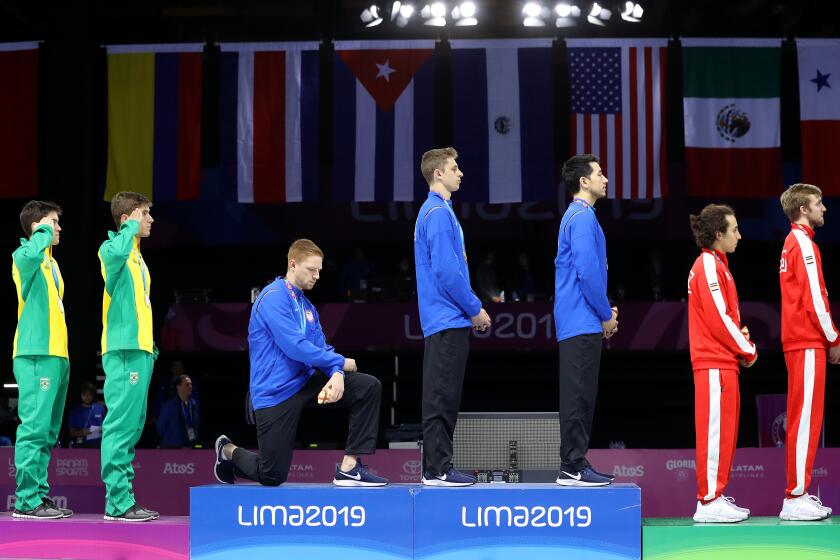USA’s first Olympic skateboarding team: Meet the hopefuls

- Share via
Twenty-one of America’s best skateboarders gathered last weekend at the Berrics, a private skate park south of downtown Los Angeles mere miles from the sport’s birthplace. It was USA Skateboarding’s media day, an event that served as an introduction for the athletes who will likely represent the United States as skateboarding makes its Olympics debut at the 2020 Games in Tokyo.
For Nyjah Huston, one of the most decorated and highest paid skaters in the world, the inclusion is long overdue.
“I think it’s about time that skateboarding is in the Olympics,” Huston told The Times.
“I personally don’t see why it wasn’t in there a long time ago. Kids and people skateboard all around the world and it’s a very global sport, but hey, at least it’s in there now.”
Now that the sport will be part of the Games, several likely Olympians are relishing the opportunity.
“I feel like in general, everybody will eat, and not just in the [financial] sense, but in the sense of cultural gain, more people will be introduced to it,” Dashawn Jordan, a 22-year-old skater from Chandler, Ariz., noted.
The IOC’s updated guidelines crack down on athletes looking to express their political or social views at the upcoming 2020 Olympic Games in Tokyo.
“A lot of people were like ‘Oh, it could change and affect skateboarding in a way that we don’t really feel is the best way,’ but as we [get] closer and closer [to the Olympics], people became immune to it and accept it it and realized that it’s not only going to be a huge growth for people who are competing.”
Among those who stand to gain the most from skateboarding being an Olympic sport are female skaters, according to Alexis Sablone. At 33, the native of Old Saybrook, Conn., is considered a veteran of the sport. In addition to being a professional skateboarder, Sablone is also an architect.
“I think for women it’s done a lot to put female skateboarders in the spotlight in a way that we weren’t for a long time,” Sablone explained.
“There’s always been a significant gap in the prize purses for competition, and it’s historically been way harder for women to get paid at all from their sponsors, and that has changed, I think, a lot due to the Olympics, because it’s kind of forced people to [see that] we’re going to be sharing the world stage. So it’s kind of like people took a second look at something they’ve been ignoring.”
More to Read
Go beyond the scoreboard
Get the latest on L.A.'s teams in the daily Sports Report newsletter.
You may occasionally receive promotional content from the Los Angeles Times.








